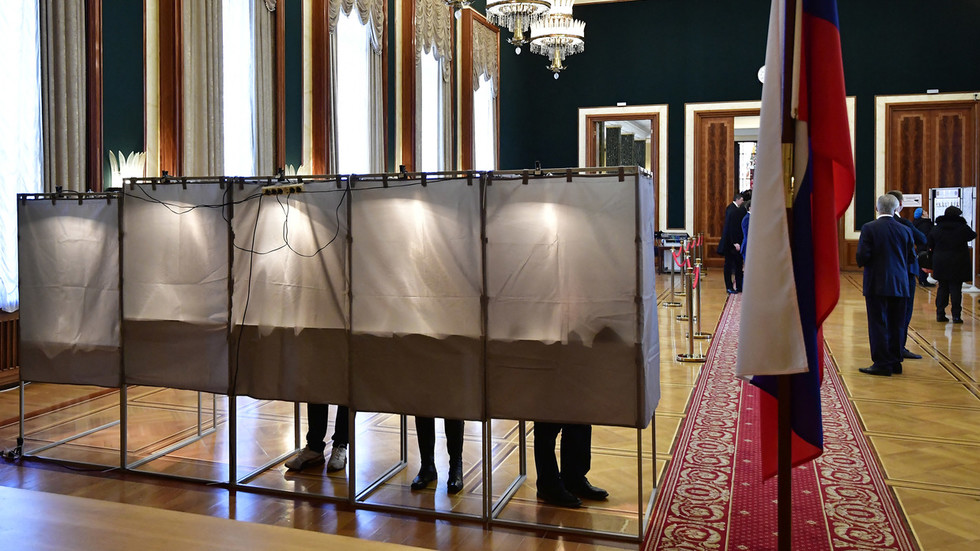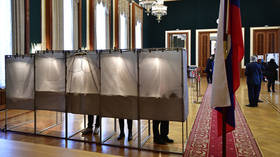
Their attitude has become more aggressive since a liberal candidate failed to register for the presidential vote, a diplomat said

FILE PHOTO: People cast their vote in Russia’s presidential election at the Russian embassy in Berlin on March 18, 2018. © AFP / Tobias Schwarz
The activities of certain Russian citizens living in other countries have become a “serious problem” for Moscow as they try to carry out provocations ahead of the presidential election, a senior Russian diplomat has said.
Ambassador at Large Gennady Askaldovich stressed that not all of those who have left Russia are “enemies”, many are “apolitical” and some “have already returned to the country” but that “a portion of those who remain abroad adopt an extremely Russophobic stance and, as far as we know, are preparing to carry out various kinds of provocations ahead and during the election.” He did not elaborate on any specific plots.
The mood of Russians who recently left the country has become more combatant since liberal candidate Boris Nadezhdin failed to register for the presidential election earlier this month due to the “incompetence of his campaign headquarters,” Askaldovich said.
“Now their frustration and aggression will be redirected at our diplomatic missions,” he warned.

Read more
Nadezhdin, who ran on a pro-Western platform, was denied a place on the ballot after the Central Electoral Commission found an excessive number of invalid signatures in paperwork submitted by his campaign.
“We’re doing a lot of information work among patriotic citizens, asking them, if possible, to assist in preventing extremist outbursts by the relocatees,” the ambassador said.
As many as 200,000 Russians termed “relocatees” – meaning those who have left in the past two years – are eligible to take part in the presidential election on March 17, according to the Russian Public Opinion Research Center (VTSIOM).
According to Askaldovich, the Foreign Ministry has also encountered other difficulties in preparing to organize the presidential vote abroad because of the “destructive policies of unfriendly nations,” mostly in the West.
He noted complications in delivering ballot papers to foreign countries. The number of polling stations in Europe is also going to be “a lot smaller” than in the last previous presidential vote in 2018, due to the closure of Russian consulates in some 30 countries, he added.
READ MORE: Key Russian bank limits remote work from abroad – RBK
However, the ambassador assured that at least one polling station will be operating in every country with which Russia has diplomatic ties, including “unfriendly” ones.
During the election in 2018, almost 1.9 million Russians cast their ballots abroad at some 400 polling stations set up in 145 countries, according to the data from the Central Electoral Commission.




